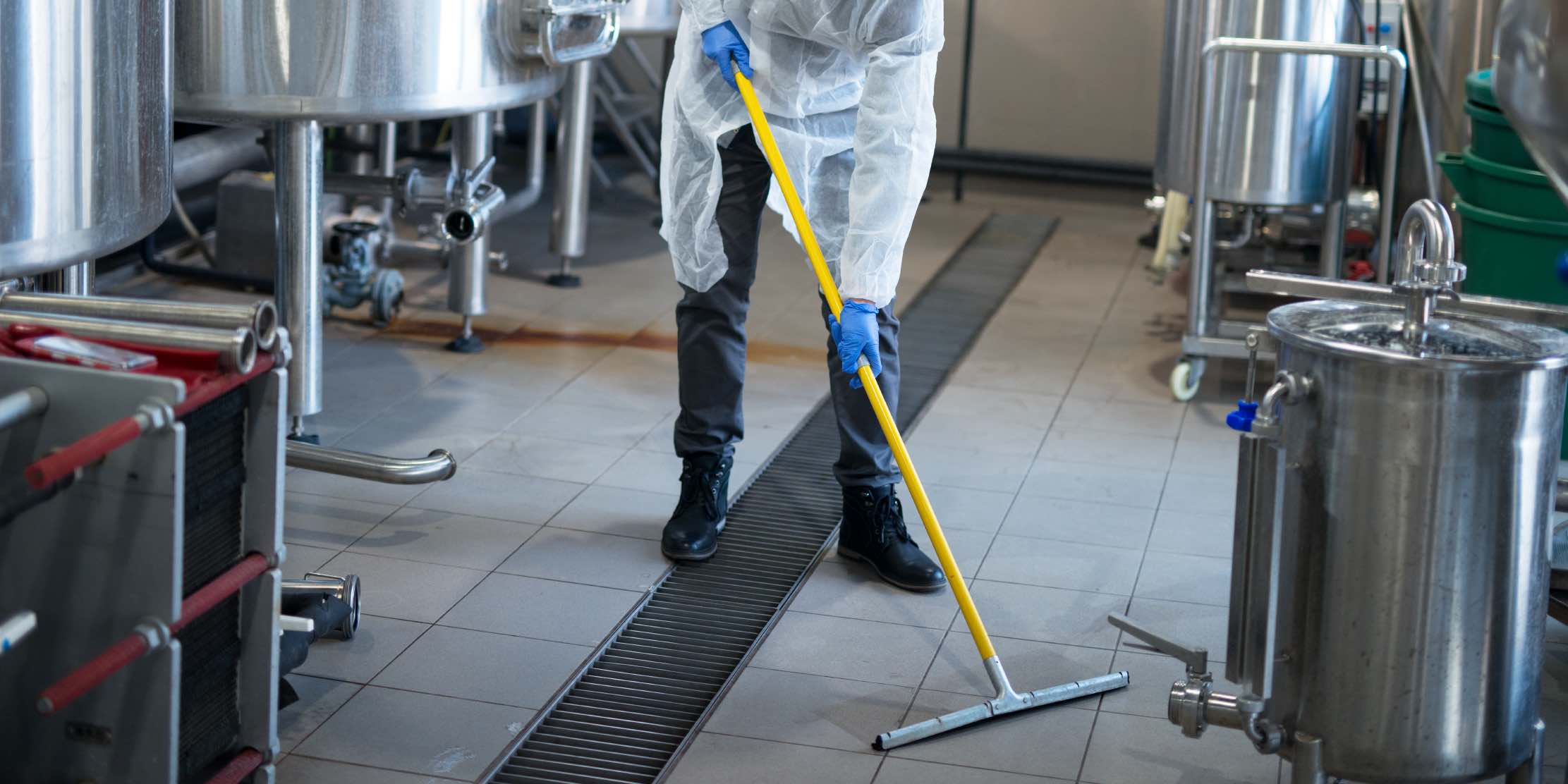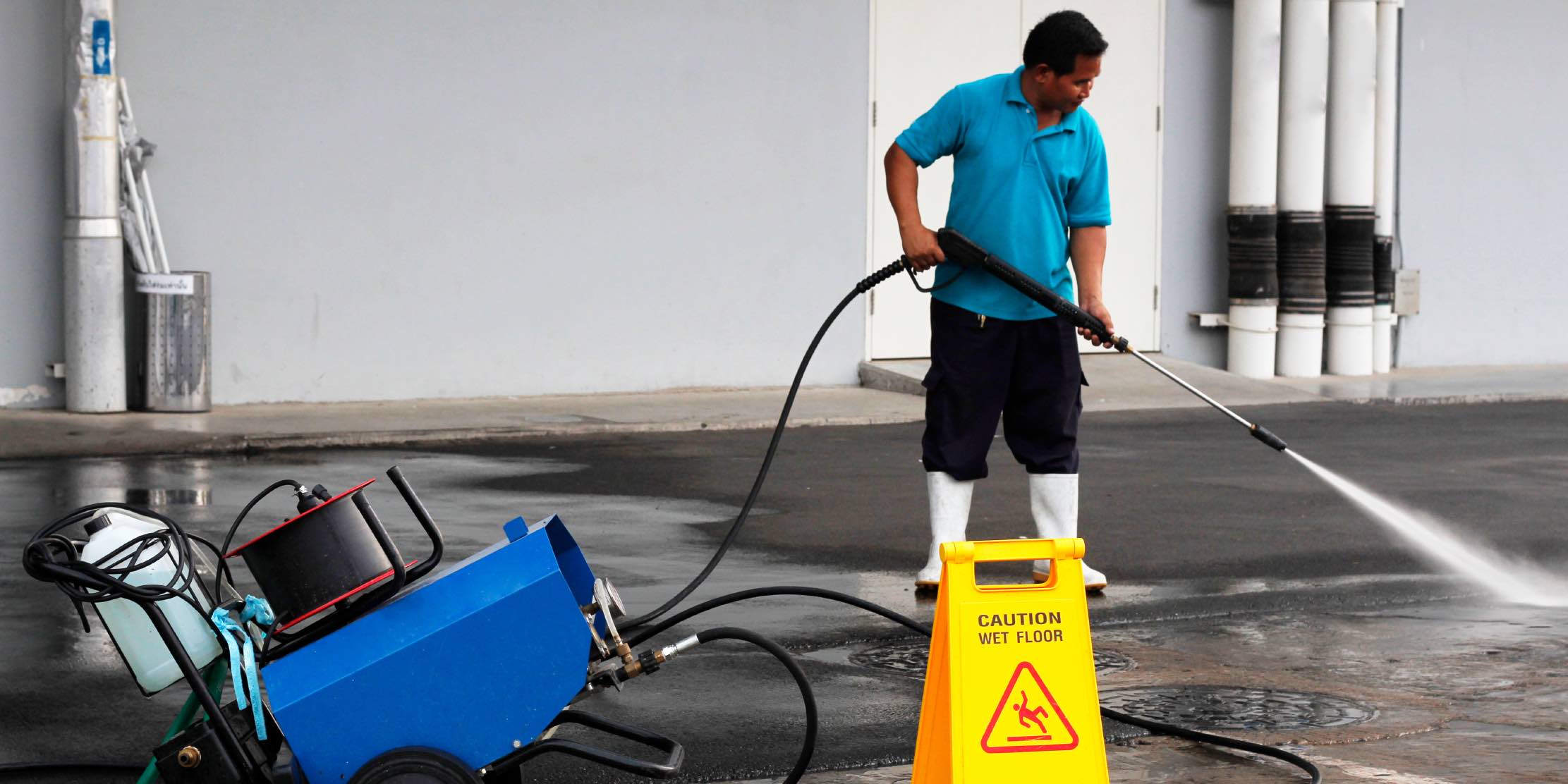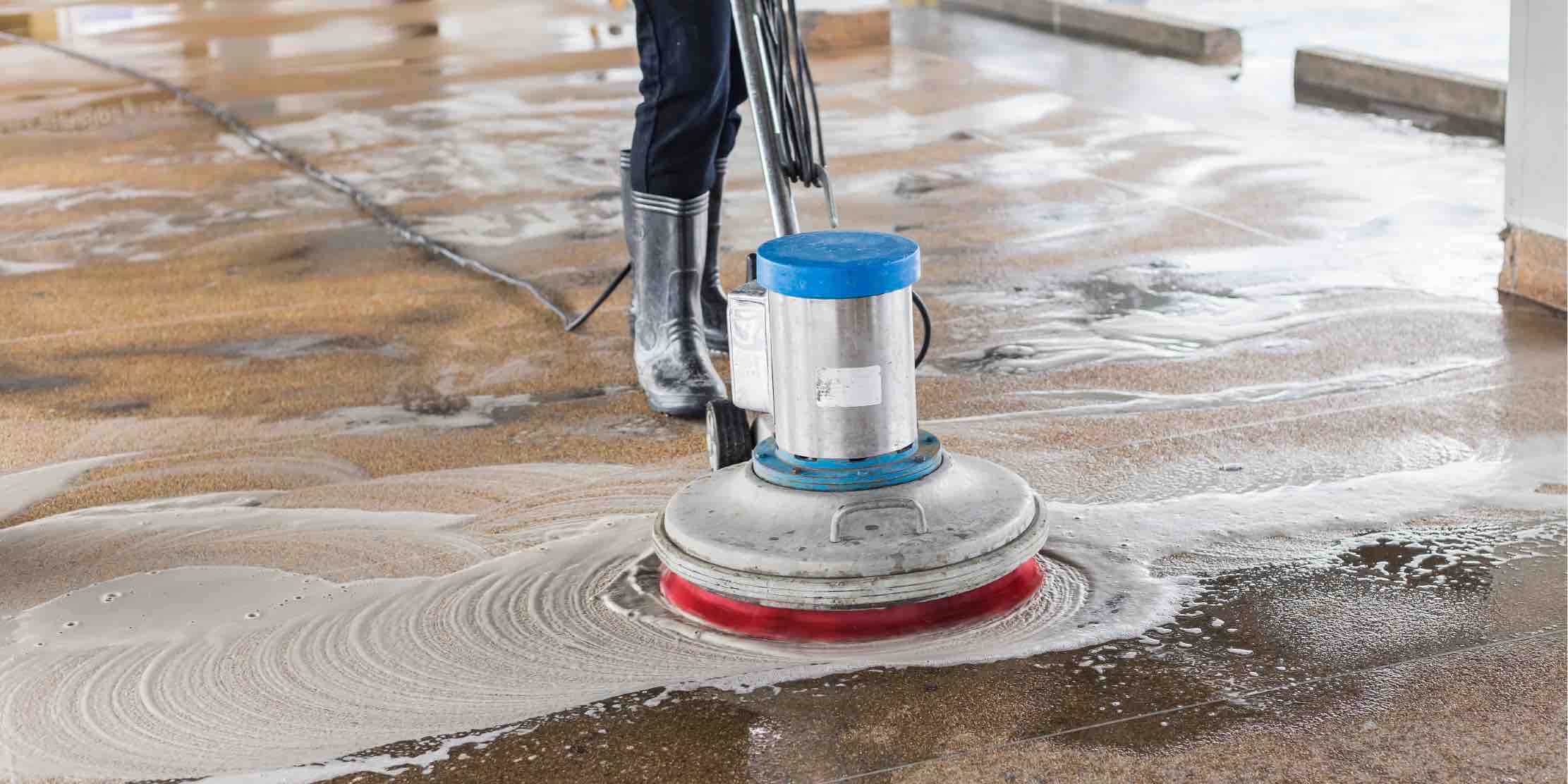Industrial cleaning for industrial floors is part of the productivity of companies.
It is essential for the safety and health of workers and for the good conservation of the material and machines available to the industry.
“Healthiness is a serious issue within the industry”.
That is why in this article we are going to tell you about the different types of industrial cleaning that exist within a logistics center or industrial warehouse according to the various needs that may arise.
Types of industrial cleaning
Here are some of the most common types of cleaning in the industrial sector.
Manual cleaning
As its name indicates, the manual cleaning method is carried out manually with the help of simple tools such as brushes and cloths.

Manual cleaning doesn’t require technical equipment, however, it’s necessary to minimize the exposure of the working staff members to the chemical products that are used. As a result, manual cleaning is becoming less and less frequent within the industrial sector.
To carry out this type of cleaning, applied temperature must be less than 45ºC, whilst application time will depend on the cleaning conditions and the type of dirt that needs to be removed.
Manual cleaning is beneficial when it isn’t a large surfaces that needs to be cleaned. Although it’s an option to consider when certain conditions don’t allow immersion cleaning.
High pressure spray cleaning
Spray cleaning method is carried out with the help of stationary or mobile sprayers and is usually used to clean all kinds of floors, tanks and even containers or pipes.

Due to the effectiveness of the method and the mechanical effect caused by the pressure, we are talking about a method that doesn’t require a lot of time.
Immersion cleaning
Immersion cleaning is one of the most common and efficient methods that exists to this day. It’s a method that allows cleaning all kinds of irregular shaped pieces, tubular or cylindrical.
The way in which immersion cleaning is applied varies depending on the needs of the industry. We can see cases in which there are automated installations expressly designed to clean specific parts or equipment, but can also be done through a manual immersion.
This type of cleaning is applied at a temperature between 60 and 80 ºC. On the other hand, the application time will depend on the type of dirt, surface and the condition of the piece to which the treatment is applied.
Foam cleaning
Foam cleaning is usually carried out when it comes to cleaning items with hard-to-reach spaces, which aren’t accessible to other industrial cleaning methods. This treatment consists on applying detergent on a machine or surface in order to create foam.
The foam adheres itself to the surface and should be left for approximately 20 minutes. This way, the chemical abrasion of the detergent will do its job and then it’s possible to remove the foam by rinsing it away.
This type of cleaning can remove dirt that isn’t possible through other methods. At a higher abrasion pressure, it’s possible to achieve a mechanical cleaning effectiveness capable of eliminating dust, metal and other particles.
Sandblasting
Sandblasting is used to clean the surface of certain types of machinery and facades. This method consists of shooting sand under high pressure using a special system.

The abrasion created by the sand is capable of removing dirt from surfaces and is highly efficient at removing grease sand smoke stains.
In situ cleaning
In situ cleaning is the type of cleaning that must necessarily be executed in the same area from which you want to remove dirt from, such as pipes, tanks, ducts and other elements that cannot be disassembled.
What are the benefits of performing industrial cleaning on a regular basis?
There are many benefits and advantages that an adequate and regular industrial cleaning of all elements of an industrial environment can offers. These are the most important:
- Improve working environment conditions: Having a clean environment is vital to protect workers’ health. In addition, when machines, instruments and facilities are kept in a proper state of cleanliness, people working within the logistics center or industrial warehouse feel more comfortable with their workplace.
- Improves productivity: A clean workspace is key to ensure the productivity of a company. From the working personnel to the production process, all the key elements for the industrial activity need well-kept facilities in optimal conditions.
- Optimization of industrial machinery: The performance of any machinery depends to a large extent on its maintenance and cleanliness. This makes it possible to prolong the useful life of the different mechanical equipment and all its components.
- It offers a good image: The image of a company is a fundamental part of its success in the eyes of consumers, since it represents a reflection of the product offered to customers. Therefore, a good cleaning plan improves the image the company conveys to customers.
Cleaning industrial floors
Cleaning concrete floors is essential when it comes to industrial sanitation. For this reason, regardless of the productive or commercial sector to which a company is engaged in, it’s necessary to establish a floor’s cleaning and maintenance.
This way we can avoid any potential accidents caused by the adherence of slippery substances on the floors surface and by other damage that may be caused by the accumulation of dust.
When a floor isn’t regularly maintained, it loses its optimal conditions in an accelerated way, it can even reduce its useful life.
In the case of floors deteriorated for any reason, there are treatments such as BECOSAN®, which, in addition to completely rehabilitating the concrete floor, offers an optimal surface for industrial work that is easy to clean and maintain.
